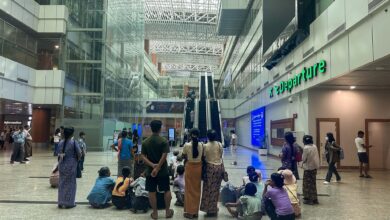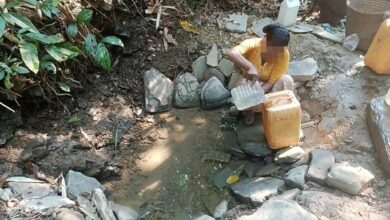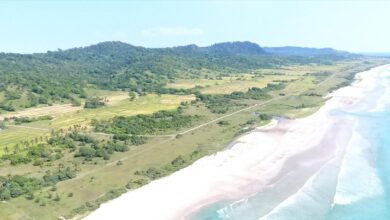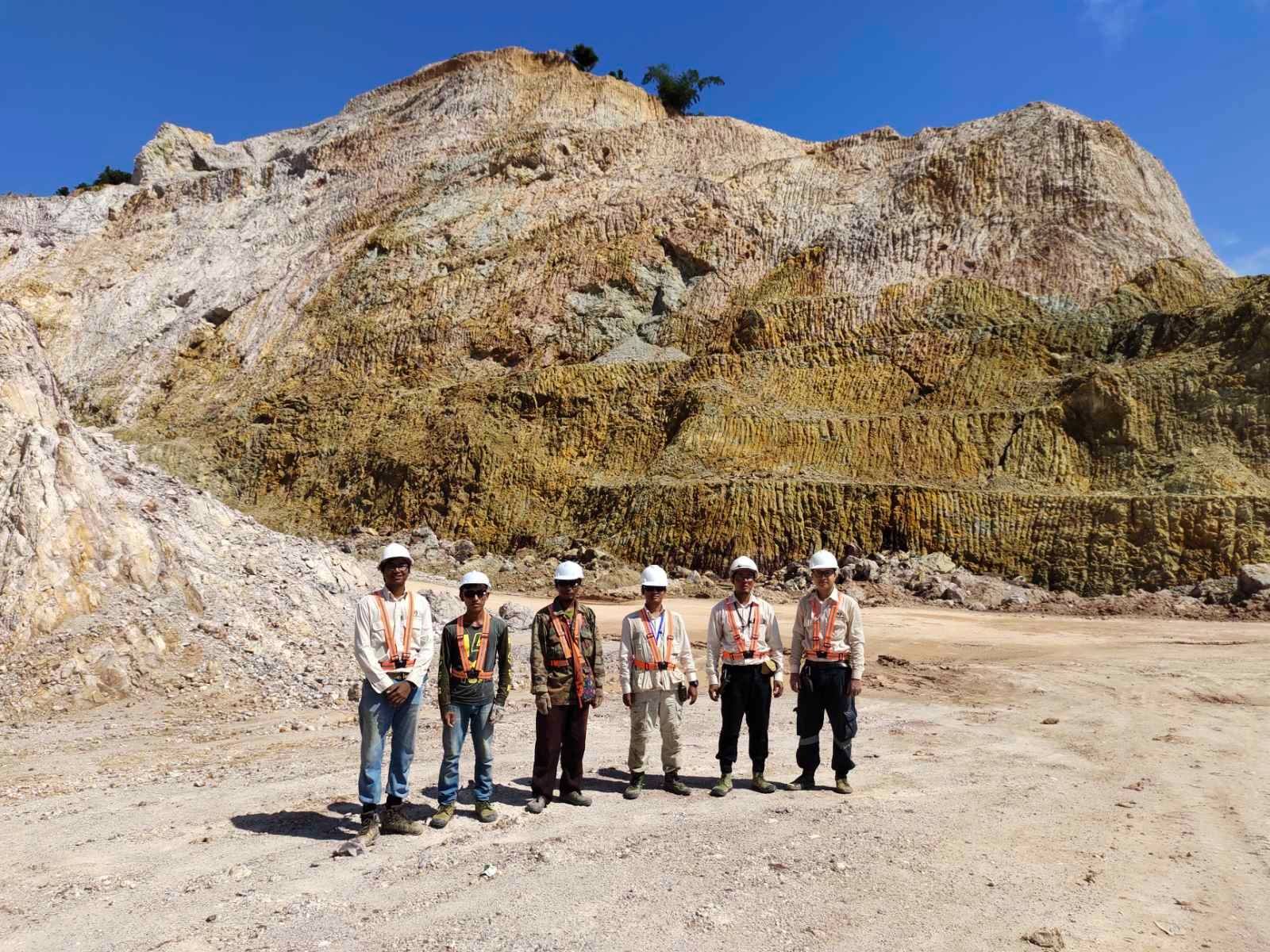
An Australian-led mining company has carried on searching for gold in eastern Shan State more than one year after its primary investor withdrew from multiple projects in the country, Myanmar Now has learned.
Locrian Precious Metals, headed by two Australians and one Myanmar national, is active in what the Shan Human Rights Foundation (SHRF) recently termed a “gold mining expansion” that has unfolded in Tachileik Township since the February 2021 coup.
The area in question is in the Loi Kham hills near the town of Ta Ler (also known as Tarlay), 45km northeast of Tachileik’s administrative centre. Multiple local military-linked companies have newly been granted mining access to the area by the junta, alongside scores of smaller enterprises that are reportedly digging without licences, instead “paying off” the military authorities in exchange for access, according to an August SHRF report.
Meanwhile, Locrian has three years remaining on its own five-year exploratory permit covering 456 sq km of land in eastern Tachileik.
Perth-based mining firm Myanmar Metals held a majority stake in Locrian’s eastern Shan State project until March 2021, when it terminated the relationship in the aftermath of the coup. Less than six months earlier, in a newsletter seen by Myanmar Now, CEO John Lamb celebrated Locrian as “a great addition” to the company’s portfolio, lauding its claim on “one of Asia’s most exciting gold districts.”
“In due course, we will undertake the first systematic exploration program the Tarlay Gold Belt has ever seen,” Lamb was quoted as saying.
Last September, Myanmar Metals sold its shares in Shan State’s Bawdwin silver and zinc mine to a subsidiary of the conglomerate Asia World, whose head, Steven Law, was subjected to US sanctions for his ties to the military and the drug trade.
Later renamed Mallee Resources, the company announced in July that it was selling its remaining Myanmar subsidiary, Bright Mountain Resources—whose “sole asset” was US$12m in proceeds from the Bawdwin deal—at a loss to known junta business partner Myanmar Airlines International for $10.2m.
Myanmar Metals has come under fire for the way it handled the sale of its Myanmar holdings, Watchdogs say the company failed to meet guidelines set by the Organisation for Economic Co-operation and Development, including those requiring human rights due diligence and consultation with stakeholders.
Clancy Moore, CEO of Transparency International Australia—who once described Myanmar Metals as having “failed [the] test” of responsible and transparent divestment—said that reports of Locrian’s continued mining exploration amount to “a giant red flag for regulators and communities.”
“If this Australian-linked mine starts producing gold then millions of dollars will line the pockets of the military regime in royalties and taxes which could be used to buy weapons,” he told Myanmar Now.
Locrian’s operations appear to involve a partner company: its leadership also heads “mining support services” firm Valentis Services Ltd., active in the same eastern Shan State region where Locrian’s exploration activities are taking place.
SHRF highlighted how a Valentis job vacancy advertised the day after the one-year anniversary of the coup called for a new “government liaison officer” to work on the “Locrian project” and “maintain constructive working relations,” presumably with junta authorities.
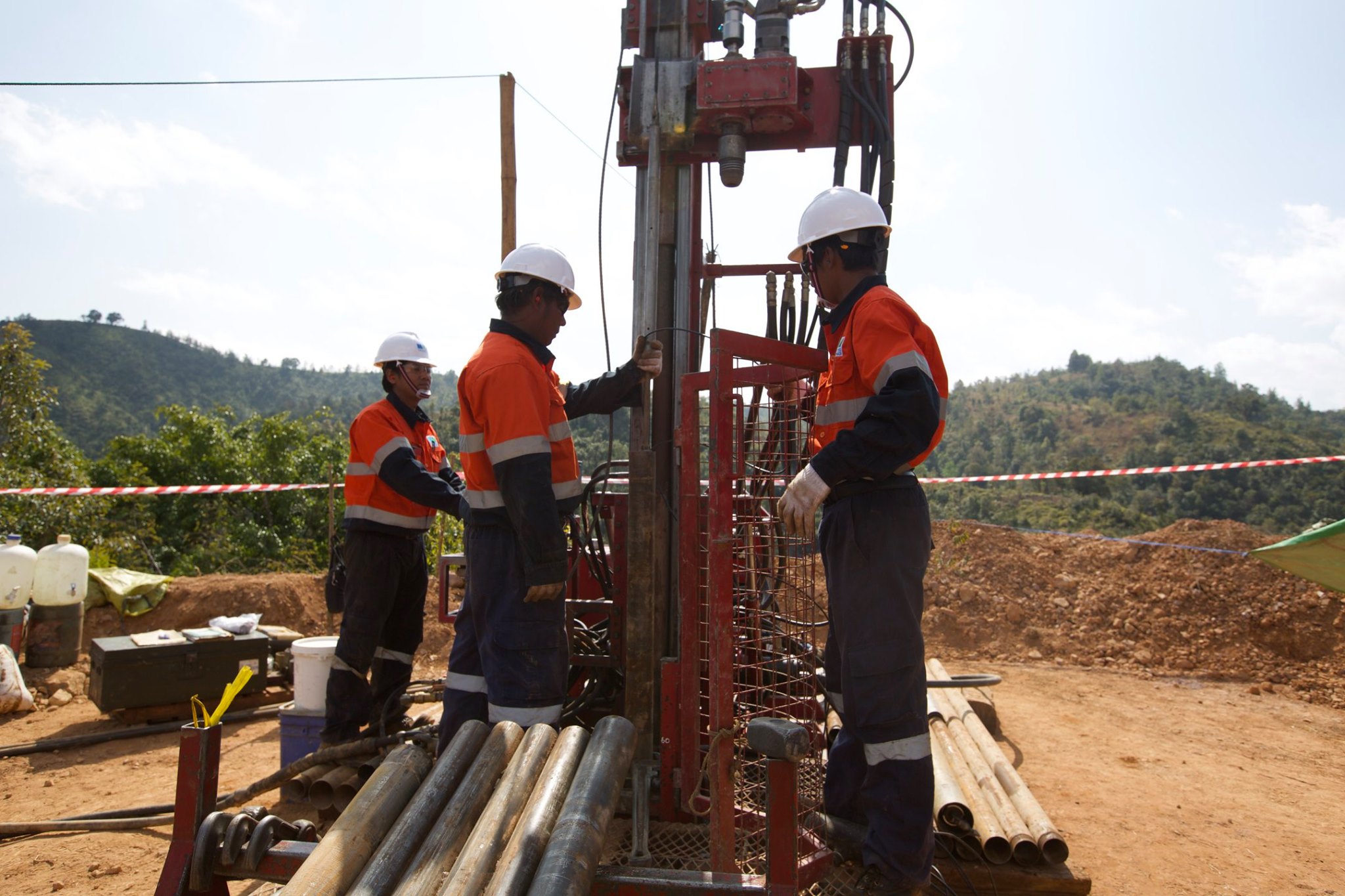
According to their respective registrations with Myanmar’s Directorate of Investment and Company Administration (DICA), Valentis and Locrian are housed in the same office in Yangon’s Mayangone Township, and have the same three directors: Australians Michael Bui Phin and Lachlan Foy and Myanmar national La Min Win.
Valentis and Locrian share this office and their management with a range of corporate entities, according to DICA. Among them are local mining services firm Aung Myay Drilling—headed by Phin and La Min Win, as well as another Valentis director, Geoffrey Lowe—and RJE Myanmar, which describes itself as “an Australian-owned engineering and construction company with a reputation for delivering innovative, client-focused solutions that get the job done.” It too is led by Phin and La Min Win, among others.
A 2015 Australian Business Review article on Australian investment in Myanmar described La Min Win as having “close family connections to the military.” Further information regarding these alleged ties was not known at the time of reporting.
Neither Locrian nor Valentis responded to Myanmar Now’s requests for comment for this article.
Myanmar military involvement
Locrian and Valentis are also joined in Tachileik by 12 Myanmar companies that hold a total of 20 active mining permits—each for a 20-acre plot around Mong Len village tract and lasting 11 years—according to a list published in late 2021 by the Myanmar Office of Natural Resources and Environmental Conservation (MNREC) and cited by SHRF.
Seven of these permits, belonging to five companies, were granted since the coup, signifying an increase in mining activities during this period.
“Several” of the companies involved are linked to officers who once served in eastern Shan State’s Triangle Regional Command and “clearly used their position to cash in on local gold mining opportunities,” according to SHRF.
Yet the unofficial number of enterprises looking for gold is much larger, an SHRF spokesperson explained.
“If we are talking about the total number of companies with licences, it is more than before [the coup]. But if we consider illegal companies, companies without licences, there may be up to 100 groups in total,” an SHRF representative said, citing local estimates which Myanmar Now is unable to independently verify.
The representative added that junta-backed militias typically “provide security” for mining sites, regardless of the legal status of the companies operating there.
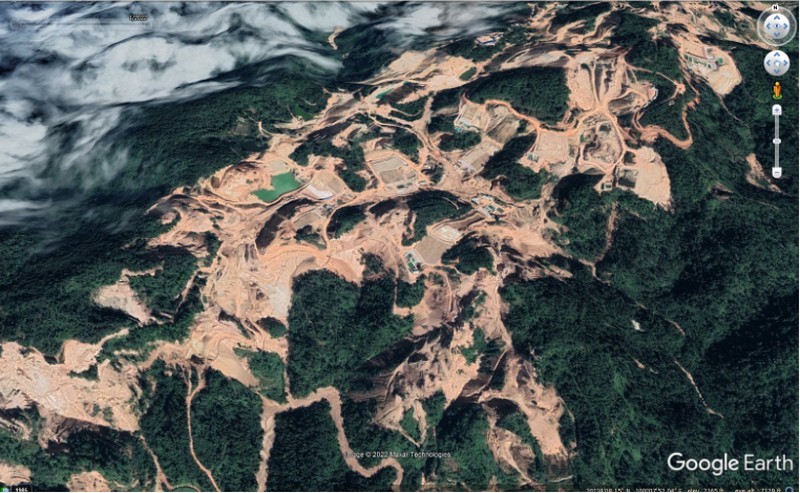
More than 50km north of Tachileik’s Ta Ler in Mong Phyak (Mong Hpayak) Township, another Australian-led company, Access Asia Mining—registered in Singapore—holds a permit for gold exploration on an 1,800 sq km swathe of land.
The company came under criticism by SHRF and international watchdogs after its representatives met with local junta officials soon after the coup. No announcements have been made to indicate that they have since withdrawn from the country.
The SHRF representative confirmed that “mining exploration is still ongoing in Mong Phyak,” but did not have further information on the activities of Access Asia in particular.
Access Asia did not respond to Myanmar Now’s request for comment on the status of the project.
‘The worst flooding’
Gold mining has reaped a heavy environmental toll in eastern Shan State, with toxic waste destroying farmland and poisoning water sources, and land degradation increasing the severity of floods.
“There are horrors happening downstream from these gold mines,” a longtime researcher on the extractive industries in Shan State told Myanmar Now on the condition of anonymity. “Companies like Locrian, Valentis and Access Asia are empowering the system that is in place, a system in which the people will never be protected.”
In July, the 52-household village of Na Hai Long in Mong Len village tract was submerged in mud as the Nam Kham stream overwhelmed the community, destroying nine homes and causing extensive damage to another eight.
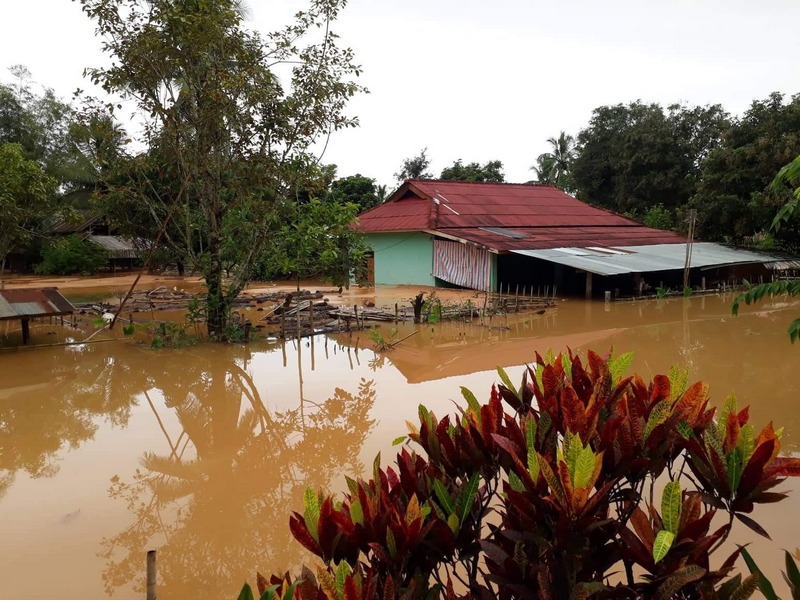
“This year has been the worst for flooding,” the SHRF representative said. He explained that the phenomenon has gradually worsened since industrial gold mining began in the area in 2007, and that residents of at least 12 households had already left due to the destruction caused by previous floods.
At the time of reporting, he noted, no compensation had been provided to the residents whose homes were affected two months ago. In earlier years, flood victims had received between $5,000 and $18,000 from the local authorities, according to SHRF, but the amount was not enough to replace the land or houses they had lost.
Meanwhile, farmland is reimbursed at a rate of less than $350 per acre, with much of it reportedly yet to be paid out.
SHRF stated that villagers in the Mong Len area “have been too intimidated to oppose the gold mining” since the 2015 murder of a local man who had objected to the industry. Loong Sarm, a 54-year-old resident of Na Hai Long, was shot and killed by Myanmar army soldiers while monitoring the activities of a local extractive company.
‘Let the people prevail’
Amendments to Myanmar’s Mines Law, passed in late 2015, essentially encouraged foreign investment in the sector, and were drafted with significant input from the Australian Agency for International Development, the mining minister at the time revealed.
Yet community-based organisations in Shan State have long called for a moratorium on mining until, as SHRF said, there is “a federal devolution of power” in Myanmar.
The group noted that the “fast-tracking” of new mining projects by the junta since the coup had made this demand “more urgent than ever.”
Speaking last year on behalf of the extractive industry transparency campaign Publish What You Pay, Transparency International’s Clancy Moore called on Australian resource companies including Locrian Precious Metals and Access Asia to “give up all exploration licenses and rule out financing the Myanmar military’s regime of terror.”
The statement followed a January withdrawal from Myanmar by oil and gas giants Total, from France; Chevron, from the US; and Australia’s Woodside, and urged mining companies to follow suit.
In his recent comments to Myanmar Now, Moore urged the Australian government to “listen to the people of Myanmar” and “follow the leadership” of the US, UK and EU by introducing sanctions to cut off revenue to the junta.
The industry researcher familiar with Shan State’s mining sector dismissed claims put forward by foreign investors that the extraction of Myanmar’s resources is inevitable, and that their own involvement in the process is more “benevolent” than that of their competitors.
“There’s no point in international companies saying, ‘Someone will exploit this situation, it might as well be us,’” the researcher said. “Rather than joining in, these companies need to pull out, not give any funds to the military, and let the people prevail.”
